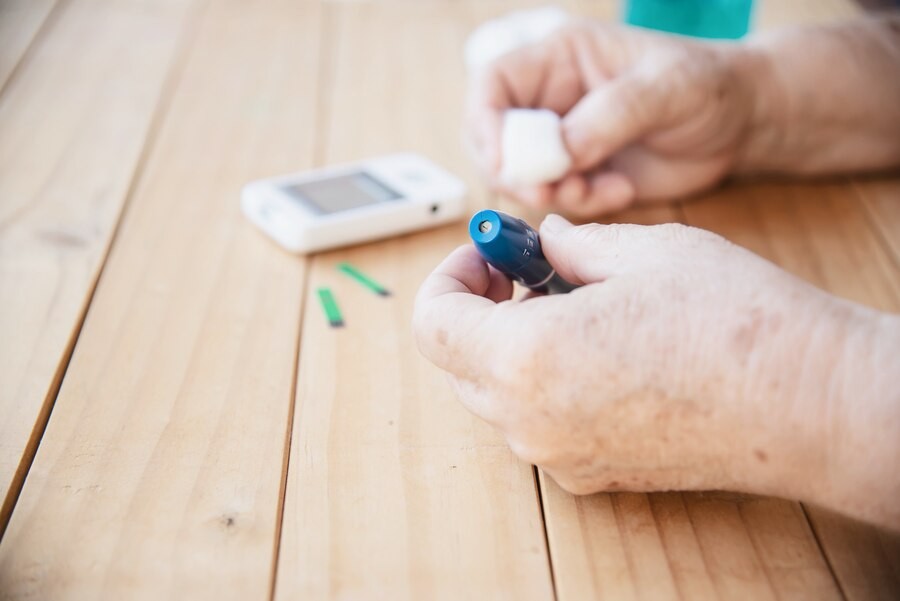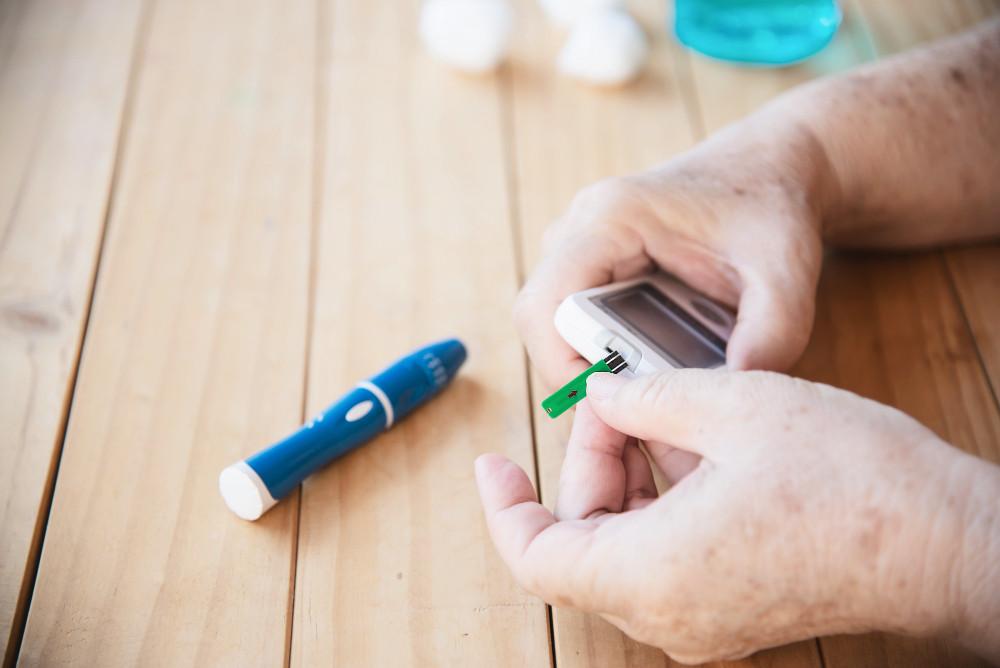Saat menjalani tes gula darah, biasanya Anda juga disarankan untuk melakukan tes kadar gula darah puasa. Tes ini mengukur jumlah gula dalam darah setelah Anda berpuasa selama 8-12 jam.
Pemeriksaan kadar gula darah puasa bertujuan untuk menilai seberapa baik tubuh mengelola glukosa, yang merupakan sumber energi utama bagi tubuh. Mengetahui hasil tes ini sangat penting untuk mendeteksi secara dini risiko diabetes atau masalah metabolisme lainnya.
Nilai Normal Kadar Gula Darah Puasa
Kadar gula darah puasa dapat diketahui melalui tes gula darah puasa. Tes ini dilakukan dengan cara mengambil sampel darah setelah tidak makan atau minum (selain air putih) selama 8-12 jam.
Nilai normal kadar gula darah puasa bisa bervariasi pada setiap orang. Berikut adalah pedoman umum yang bisa digunakan sebagai acuan:
- Kadar normal gula darah puasa: 70 - 100 mg/dL
- Prediabetes: 100-125 mg/dL
- Diabetes: ≥ 126 mg/dL
Bila kadar gula darah puasa Anda berada di antara 100-125 mg/dL, maka Anda memiliki kondisi prediabetes yang artinya berisiko tinggi dalam mengembangkan diabetes tipe 2. Sedangkan apabila kadar gula darah puasa mencapai atau melebihi 126 mg/dL dalam dua kali tes berturut-turut, maka Anda mungkin didiagnosis dengan diabetes tipe 2.
Baca Juga: Tanda-Tanda Prediabetes yang Bisa Dikenali
Faktor yang Memengaruhi Kadar Gula Darah Puasa
Kadar gula darah puasa dapat dipengaruhi oleh beberapa faktor, di antaranya:
- Jenis dan jumlah makanan yang dikonsumsi. Khususnya makanan tinggi karbohidrat dan gula yang bisa meningkatkan kadar gula darah
- Aktivitas fisik seperti olahraga, yang dapat membantu menurunkan kadar gula darah
- Tingkat stres yang dapat menaikkan kadar gula darah
- Kondisi kesehatan dan penggunaan obat-obatan tertentu yang dapat memengaruhi kadar gula darah
Baca Juga: Gejala yang Dirasakan Bila Kadar Gula Darah Tinggi
Cara Menjaga Kadar Gula Darah Tetap Stabil
Menjaga kadar gula darah tetap normal dan stabil membutuhkan gaya hidup sehat dan pola makan yang seimbang. Berikut adalah beberapa cara yang bisa dilakukan untuk menjaga kadar gula darah tetap stabil:
- Makan dalam porsi yang sesuai dapat membantu menghindari lonjakan gula darah. Makan dalam porsi kecil tapi sering lebih baik dibandingkan makan dalam jumlah besar sekaligus.
- Menjaga asupan serat yang dapat mengontrol kadar gula darah dengan memperlambat penyerapan gula ke dalam aliran darah. Serat yang baik dapat diperoleh melalui sayuran, buah, kacang-kacangan, dan biji-bijian.
- Menghindari karbohidrat olahan seperti roti putih, pasta, dan nasi putih yang memiliki indeks glikemik tinggi dan bisa menyebabkan lonjakan gula darah.
- Mencukupi asupan protein dan lemak sehat yang dapat memperlambat pencernaan dan penyerapan karbohidrat, serta membantu mencegah lonjakan gula darah.
- Mencukupi waktu tidur karena kurang tidur dapat meningkatkan risiko resistensi insulin dan menyebabkan lonjakan kadar gula darah.
- Minum cukup air untuk menjaga kadar gula darah tetap stabil.
- Membatasi konsumsi alkohol, karena alkohol dapat menyebabkan fluktuasi gula darah yang ekstrem.
- Berhenti merokok untuk membantu mengontrol kadar gula darah dalam jangka panjang.
Bila kadar gula darah puasa menunjukkan prediabetes atau diabetes tipe 2, sebaiknya konsultasikan dengan dokter. Anda juga bisa memanfaatkan layanan konsultasi bersama dokter pada aplikasi Ai Care dengan mengunduhnya melalui App Store atau Play Store.
Mau tahu informasi seputar penyakit lainya? Cek di sini, yah!
- dr Nadia Opmalina
Emily Cronkleton (2024). Fasting blood sugar (glucose): Normal levels and testing. Available from: https://www.medicalnewstoday.com/articles/317466
Cleveland Clinic (2021). Fasting Blood Sugar Test. Available from: https://my.clevelandclinic.org/health/diagnostics/21952-fasting-blood-sugar
Mike Hoskins (2024). Helping You Understand ‘Normal’ Blood Sugar Levels. Available from: https://www.healthline.com/health/diabetes/normal-blood-sugar-level
Alyson Powell Key (2024). How Sugar Affects Diabetes. Available from: https://www.webmd.com/diabetes/how-sugar-affects-diabetes
Angela McPhillips (2024). Blood Glucose Tests for Diabetes. Available from: https://www.webmd.com/diabetes/diagnosing-type-2-diabetes












